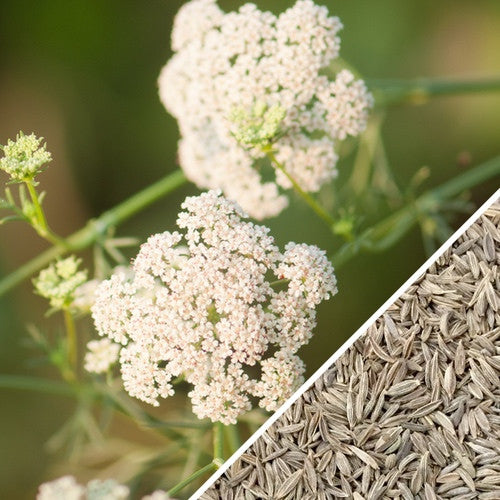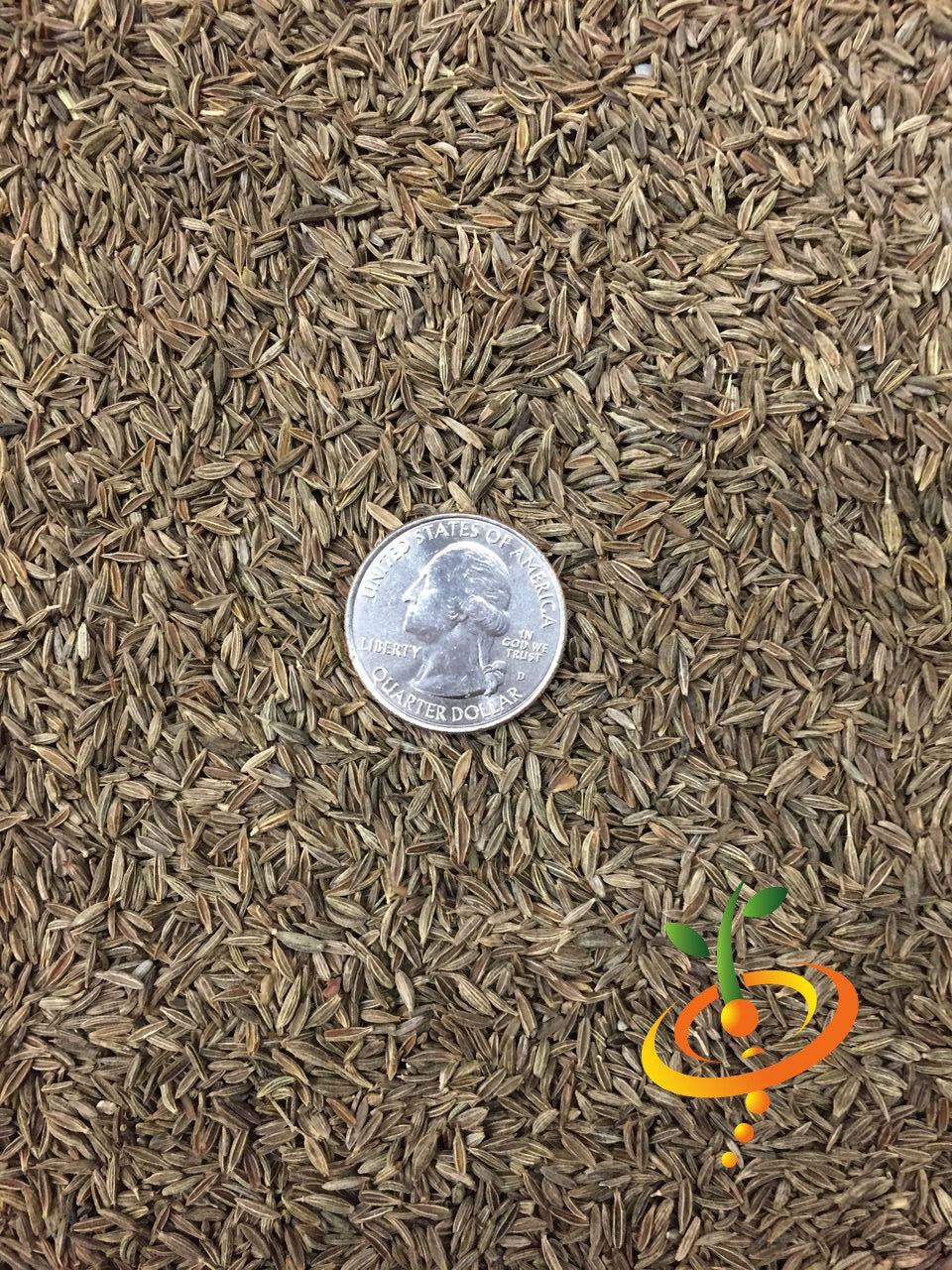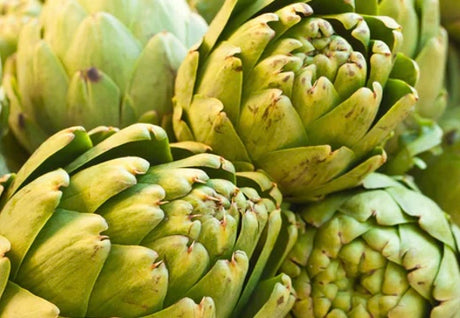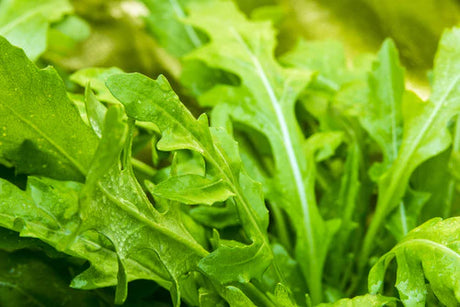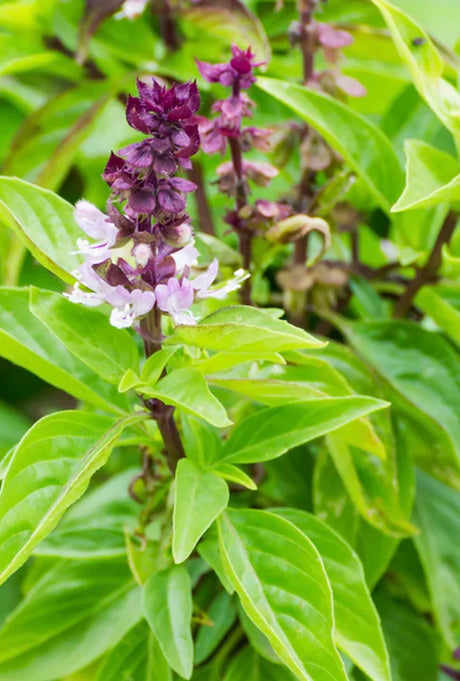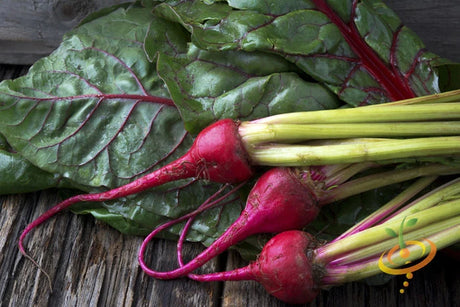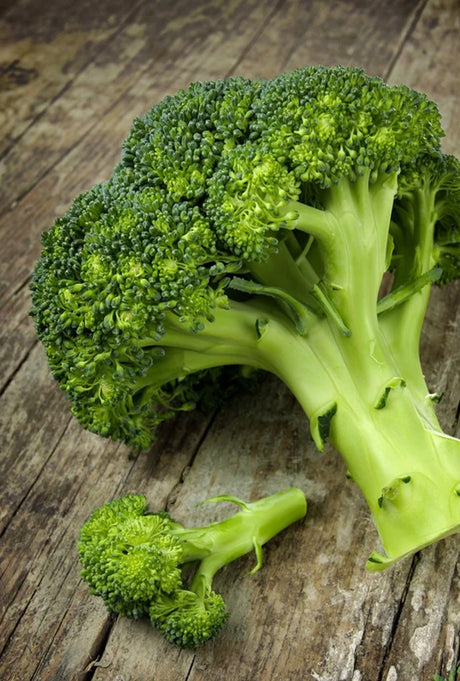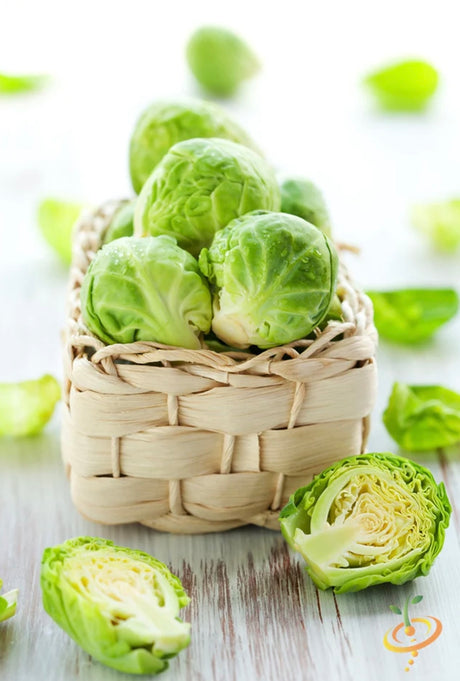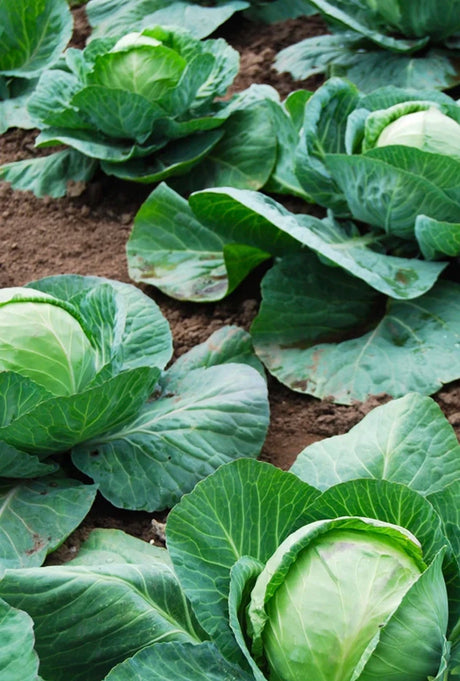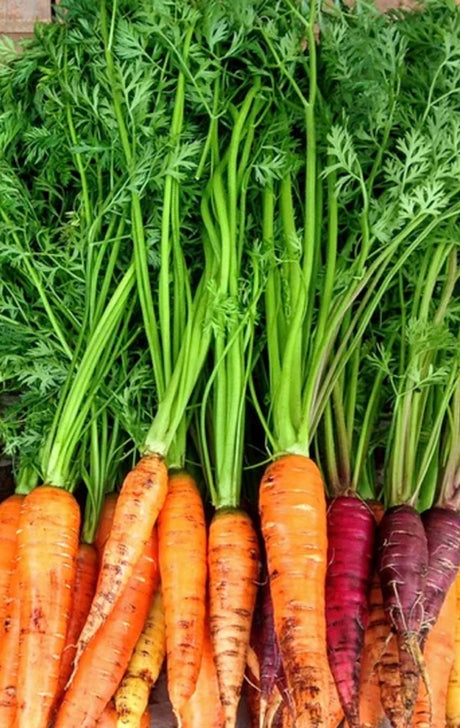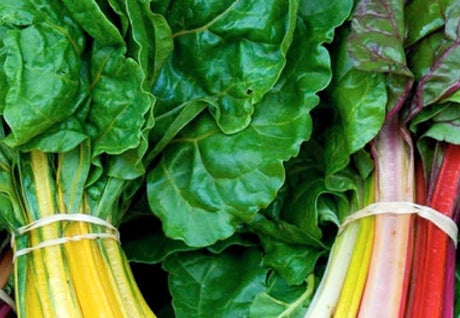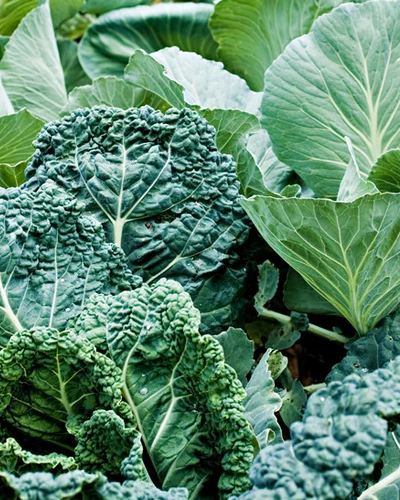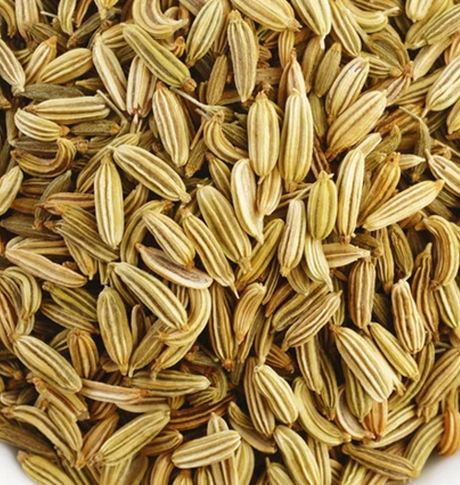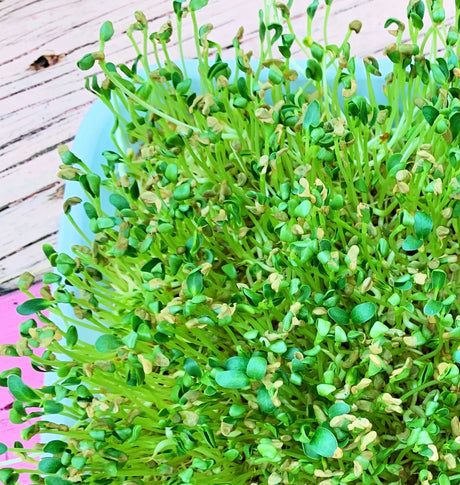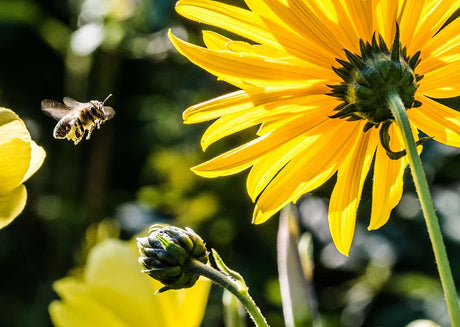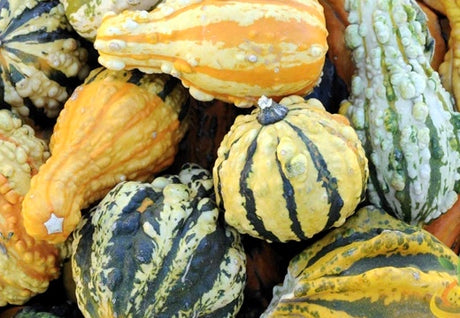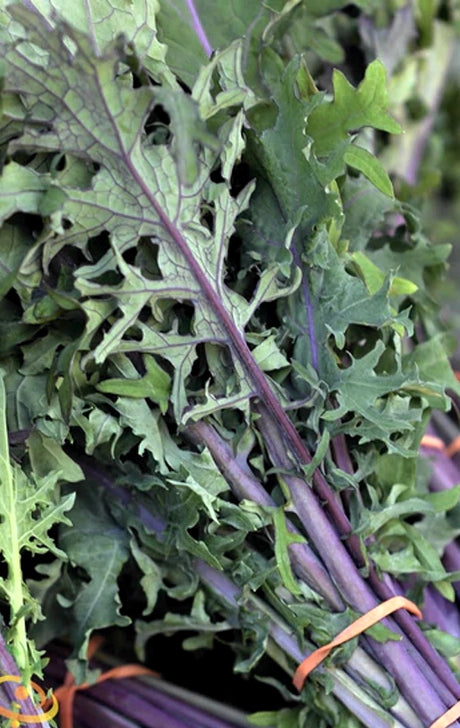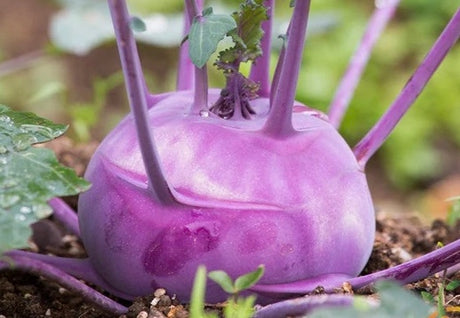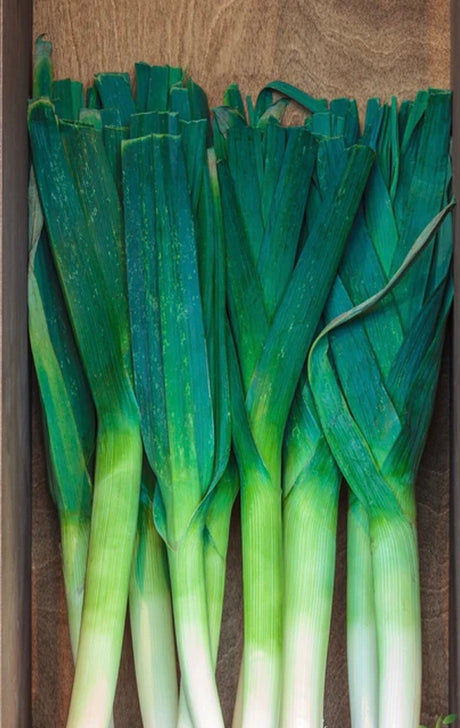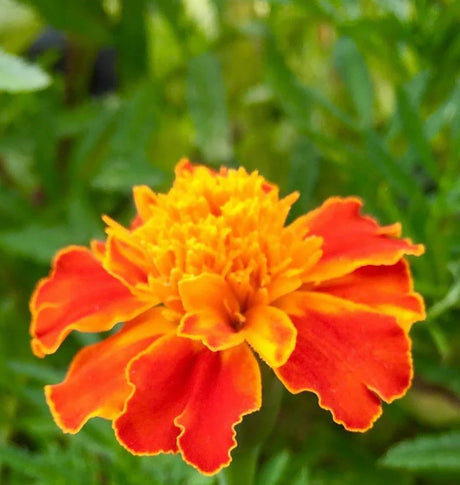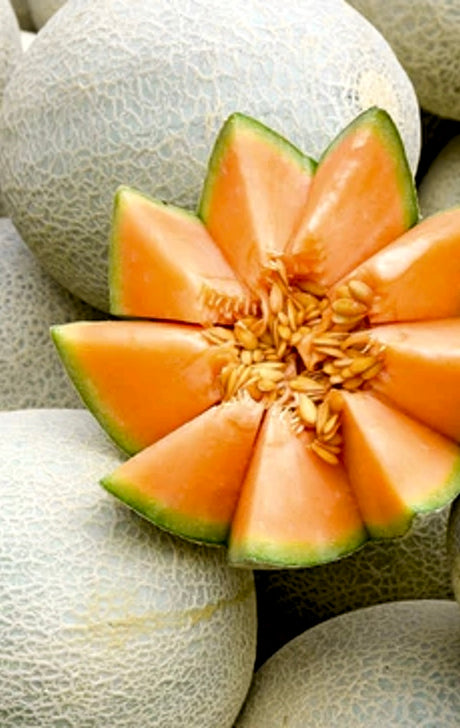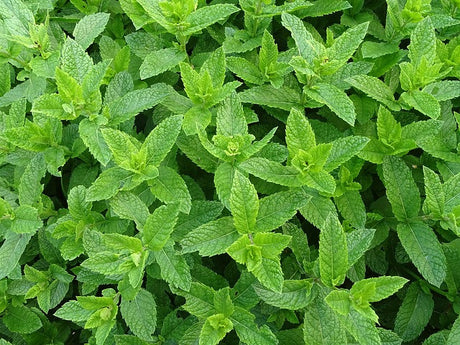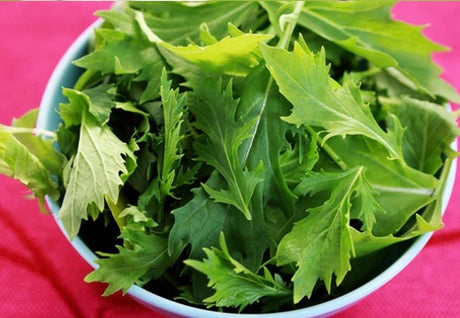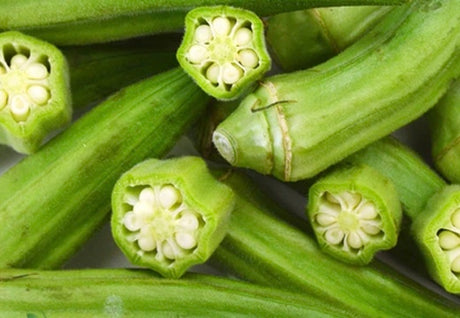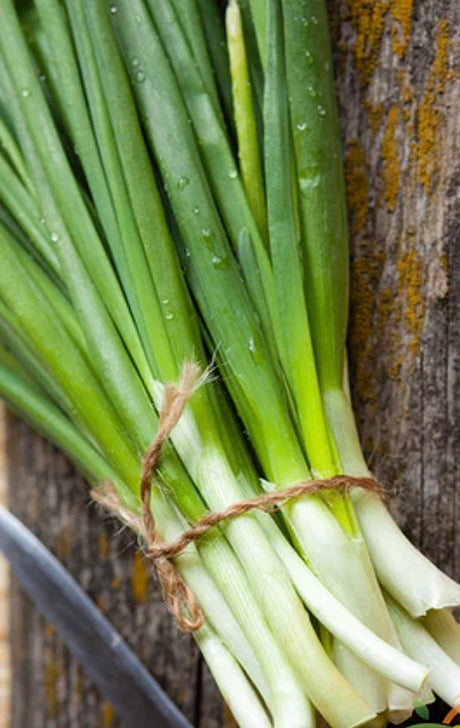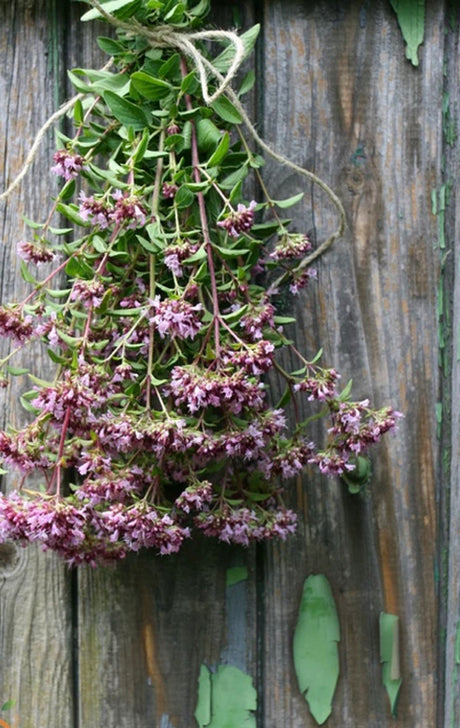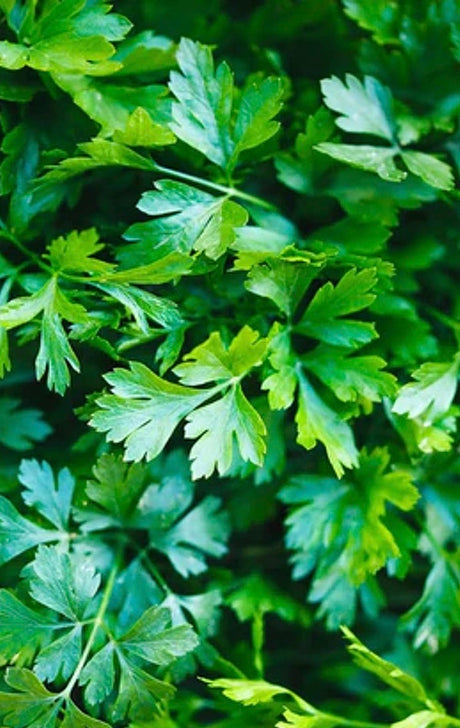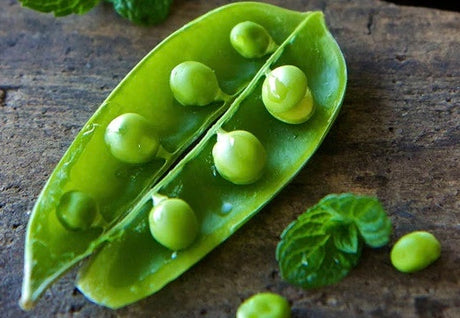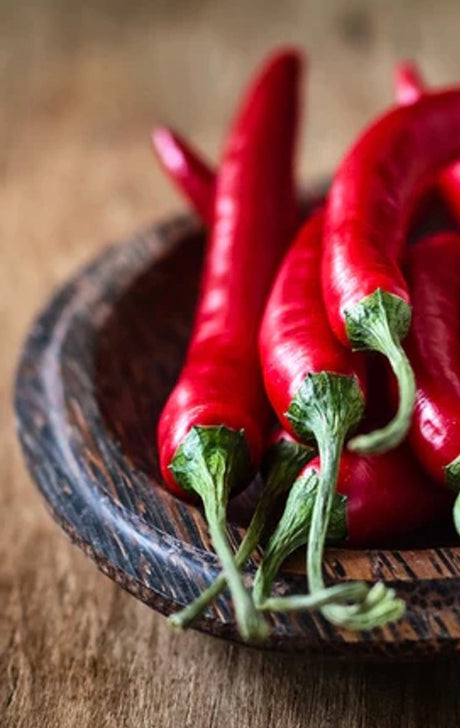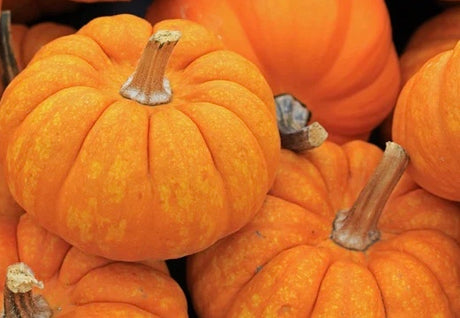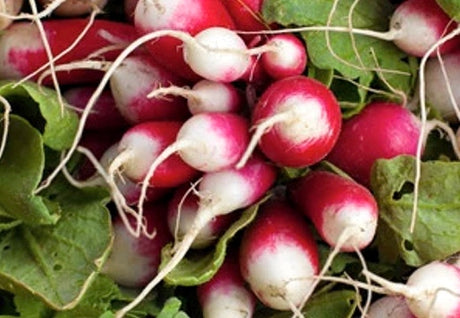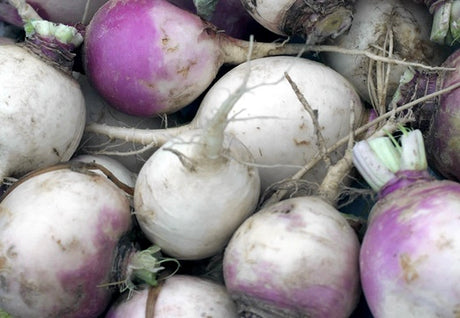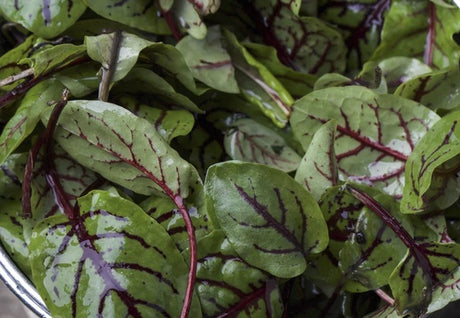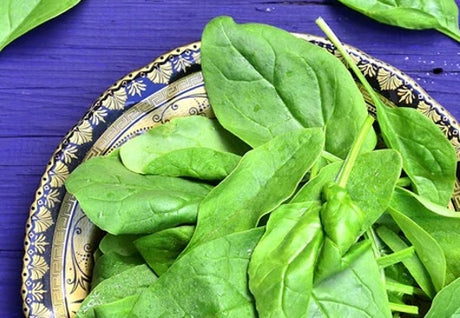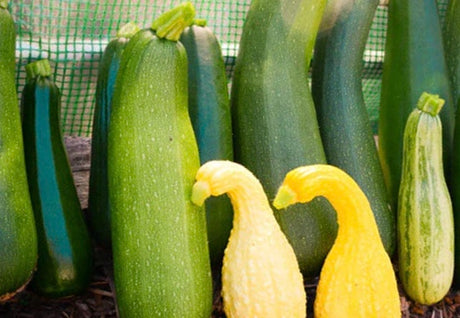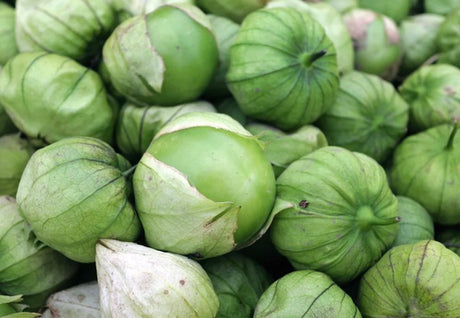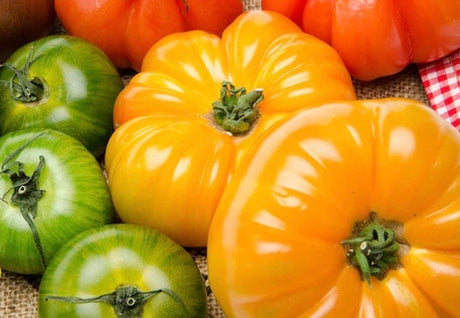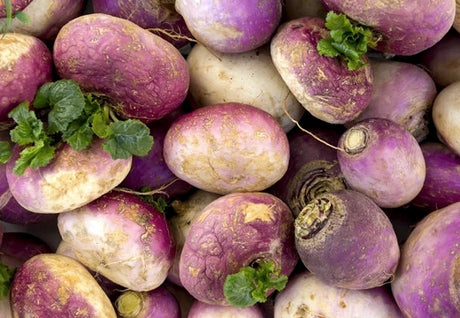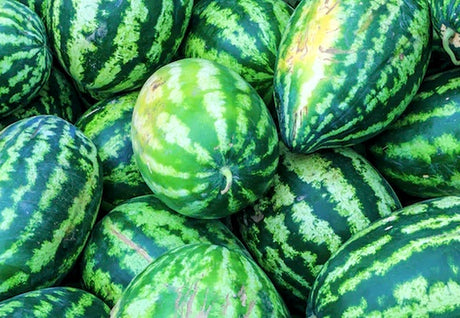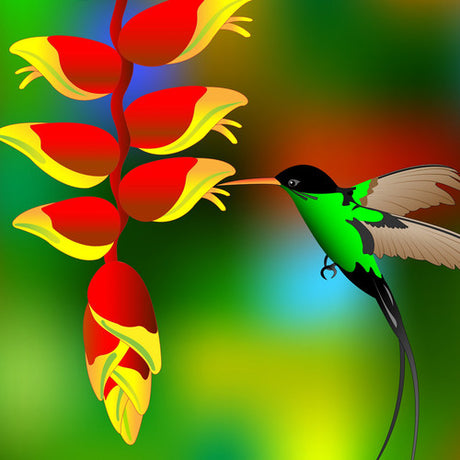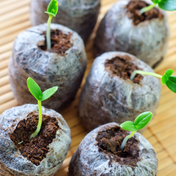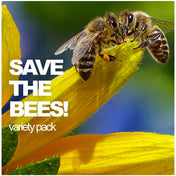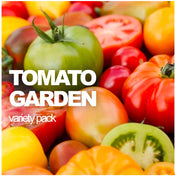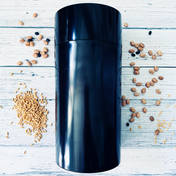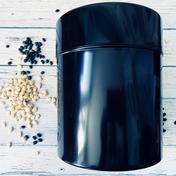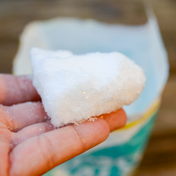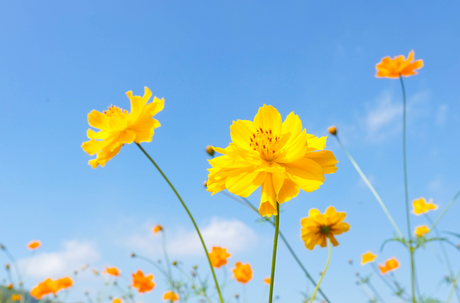Cumin, Classic
Add this item to your cart
| Subtotal | |||
|---|---|---|---|

|
Sampler Pack (Appx. 125 seeds)
$399
|
||

|
Large Pack (Appx. 1,000 seeds)
$999
|
||
Description
Description
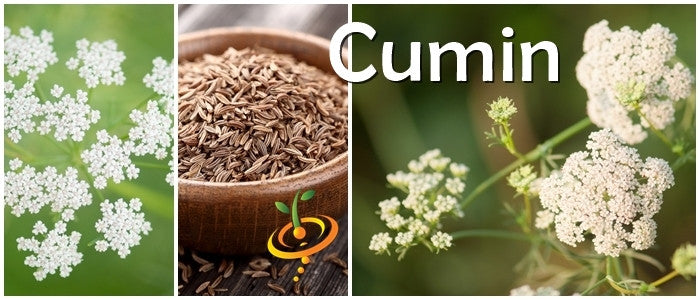
Cumin is an aromatic herb with feathery foliage and small pinkish flowers. The seeds are used as a spice, both whole and powdered, and is second only to black pepper as the most popular spice across all continents. Its earthy, nutty, slightly bitter flavor is used extensively in traditional North African, Indian, and Mexican cuisines. Thrives in hot, dry conditions. The leaves and flowers are also edible, and can be used to add unique flavor to salads and pickling brines.
- Earthy, nutty, flavor
- Heat and drought tolerant
- Grows 8"-12" tall
- Good for containers
As a companion plant, it attracts pollinators and beneficial insects.
As a medicinal herb, Cumin seed has been used internally to treat bloating, colic, cough, fever, flatulence, headache, indigestion, insomnia, pain, restlessness, stomach upset, and weight issues, and externally to treat skin problems and toothache.
SEED PLANTING TIPS
- Botanical name: Cuminum cyminum
- Life cycle: Herbaceous annual
- Hardiness zones: 5-10
- Planting season: Spring
- Days to maturity: 120-150 days; can begin harvesting when 6" tall
- Depth to plant seeds: 1/4" deep
- Days to germinate (sprout): 7-14 days
- Germination soil temps: 68F-86F
- Spacing between plants: 4"-6" apart
- Spacing between rows: 18"-24" apart
- # of plants per sq. ft.: Appx. 9 plants per sq. ft.
- Soil types: Sandy, loamy, rich, dry, moist, well-drained
- Soil pH: 6.5-8.0
- Sun needs: Full sun
- Water needs: Low - do not overwater
- Cold stratify: No
- Frost tolerant: No
- Heat tolerant: Yes
- Drought tolerant: Yes
- Deer resistant: Yes
- Culinary use: Yes
- Medicinal use: Yes
⚠️ Medicinal properties are presented as information only, and are not a recommendation or prescription for use. Consult a medical professional before using any herb medicinally.
See Cumin Recipes & Growing Tips on our Pinterest Board
Description
Description

Cumin is an aromatic herb with feathery foliage and small pinkish flowers. The seeds are used as a spice, both whole and powdered, and is second only to black pepper as the most popular spice across all continents. Its earthy, nutty, slightly bitter flavor is used extensively in traditional North African, Indian, and Mexican cuisines. Thrives in hot, dry conditions. The leaves and flowers are also edible, and can be used to add unique flavor to salads and pickling brines.
- Earthy, nutty, flavor
- Heat and drought tolerant
- Grows 8"-12" tall
- Good for containers
As a companion plant, it attracts pollinators and beneficial insects.
As a medicinal herb, Cumin seed has been used internally to treat bloating, colic, cough, fever, flatulence, headache, indigestion, insomnia, pain, restlessness, stomach upset, and weight issues, and externally to treat skin problems and toothache.
SEED PLANTING TIPS
- Botanical name: Cuminum cyminum
- Life cycle: Herbaceous annual
- Hardiness zones: 5-10
- Planting season: Spring
- Days to maturity: 120-150 days; can begin harvesting when 6" tall
- Depth to plant seeds: 1/4" deep
- Days to germinate (sprout): 7-14 days
- Germination soil temps: 68F-86F
- Spacing between plants: 4"-6" apart
- Spacing between rows: 18"-24" apart
- # of plants per sq. ft.: Appx. 9 plants per sq. ft.
- Soil types: Sandy, loamy, rich, dry, moist, well-drained
- Soil pH: 6.5-8.0
- Sun needs: Full sun
- Water needs: Low - do not overwater
- Cold stratify: No
- Frost tolerant: No
- Heat tolerant: Yes
- Drought tolerant: Yes
- Deer resistant: Yes
- Culinary use: Yes
- Medicinal use: Yes
⚠️ Medicinal properties are presented as information only, and are not a recommendation or prescription for use. Consult a medical professional before using any herb medicinally.
See Cumin Recipes & Growing Tips on our Pinterest Board
FAQs
FAQs
| Where can you ship your seeds to? |
|
| How much is shipping across the USA? |
|
| How do you ship your seeds? |
|
| What is a Seed Bank? |
|
| Are all your seeds NON-Genetically Modified (Non-GMO)? |
|
| Are all your seeds Organic? |
|
| What do you mean by growing Organic food? |
|
| What is a Genetically Modified seed? |
|
| What does it mean when you say the seeds are Non-Hybrid and Open-Pollinated? |
|
| Do you accept returns? |
|
| Can I collect my seeds after harvest? |
|
| How many years will my seeds last? |
|
About Our Seeds
About Our Seeds

|
GMO-FREE We also offer a few hybrid varieties on this website and they will be labeled as such on product listing. |

|
|
|
MOISTURE-PROOF PACKAGING All our seeds are packaged in high quality re-sealable moisture-proof packs designed to protect & extend the shelf-life of your seeds. We do NOT use paper envelopes. Read frequently asked questions |
 |
|
|
5-STAR CUSTOMER SUPPORT |
 |
|
|
SATISFACTION. GUARANTEED. |
 |
|
|
HIGHEST QUALITY SEEDS |

|
|
|
TOTALLY RAW & UN-TREATED |

|
Know where your food comes from.
Support local growers.
Grow your own Organic/GMO-FREE food!
Useful Links: [What is GMO?] [Step-by-Step Grow Guides] [Safe Seed Pledge] [FAQs]
WE DO NOT GROW OR SELL SEEDS FROM MONSANTO OR ANY OTHER COMPANY THAT IS AFFILIATED WITH GMO.
✓ NON-GMO
✓ HEIRLOOM
✓ OPEN-POLLINATED (OP)
✓ RAW, NATURAL & UN-TREATED
Safe Seed Pledge
Safe Seed Pledge
OUR PLEDGE TO YOU
Agriculture and seeds provide the basis upon which our lives depend. We must protect this foundation as a safe and genetically stable source for future generations.
For the benefit of all farmers, gardeners and consumers who want an alternative. We pledge to you that we do not knowingly buy or sell genetically engineered seeds or plants. The mechanical transfer of genetic material outside of natural reproductive methods and between genera, families or kingdoms, poses great biological risks as well as economic, political, and cultural threats.
We wish to support agricultural progress that leads to healthier soils, genetically diverse agricultural ecosystems and ultimately healthy people and communities.
We do not buy - OR - grow any seed from large corporations that make Genetically Engineered seeds. We don't touch that stuff and we never will.
The seeds we offer aren't like varieties you'd typically find at a garden center.
Every variety we offer is 100% OP (open-pollinated). Open-pollination means that you can safely save the seed after harvest and preserve a collection of heirloom seed for many generations to come.
To make it perfectly clear ... Our seeds do not contain any exogenously inserted embryogenesis deactivator genes caused by human intervention.
We now accept the following payment methods
continue shopping
🌱 Featured Seed Types (A - Z)
Go to the seed shopcontinue shopping






